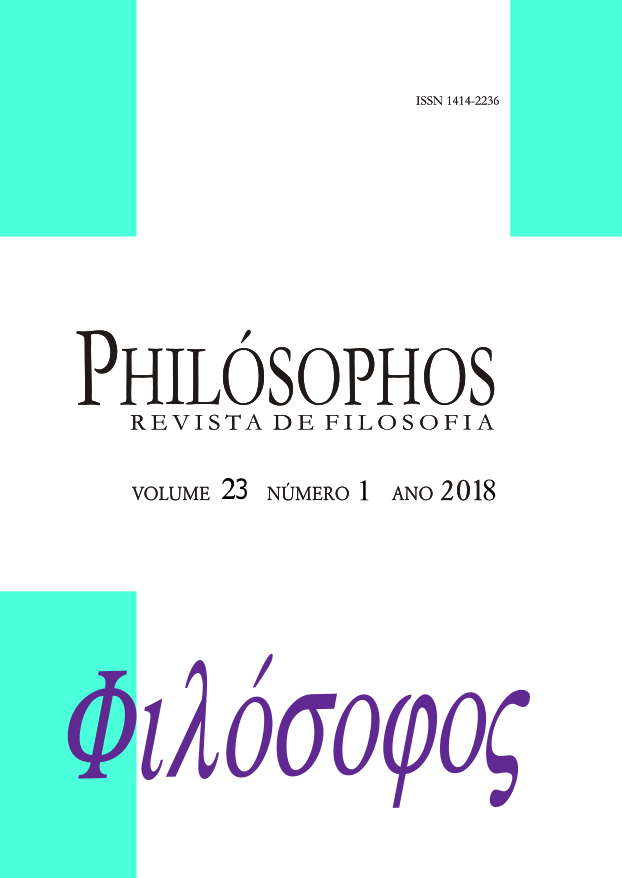LITERALNESS AND METAPHOR IN THE PHILOSOPHY OF GILLES DELEUZE: A BERGSONIAN WAY
DOI:
https://doi.org/10.5216/phi.v23i1.43220Keywords:
Gilles Deleuze, Literalness, Metaphor, Henri Bergson.Abstract
This article aims to think in the work of Gilles Deleuze especially written with Felix Guattari, the debate involving the literalness issue from a retreat to the thought of the philosopher Henri Bergson. The deleuze-guattarian literalness it's a working way in which certain formulations must being read to the letter (a la letter) rather than interpreted as metaphors, particularly those of imagistic content. The question of literalness was introduced into our country through the dossier Between Deleuze and Education published in 2005 in the journal Education & Society and fomented a lively discussion, particularly in the educational field - given the fact that François Zourabichvili suggested an alleged deleuzean teaching theory from that notion. Far from wanting to give an end to this debate, we proposed think this question under the aegis of Bergson's thought in order to offer an escape from the established binary.
Downloads
Downloads
Published
How to Cite
Issue
Section
License
Authors who publish in this journal agree to the following terms:
- Authors retain copyright and grant the journal right of first publication, with the work simultaneously licensed under a Creative Commons Attribution License that allows others to share the work with an acknowledgement of the work's authorship and initial publication in this journal.
- Authors are authorized to enter into separate, additional contractual arrangements for the non-exclusive distribution of the journal's published version of the work (e.g., publishing in an institutional repository or as a book chapter), with an acknowledgement of its authorship and initial publication in this journal.















